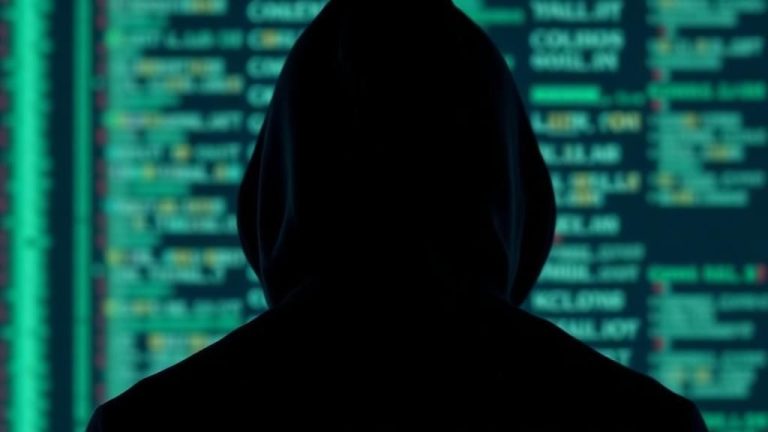The PLP SoCal data breach has been confirmed following claims by the Akira ransomware group, which added the California-based lighting and architectural hardware company to its dark web leak site. According to the attackers, over 26 gigabytes of confidential data were stolen, including sensitive personal information belonging to employees, internal financial documents, client data, and corporate communications.
The Akira ransomware group disclosed the attack on November 7, 2025, identifying PLP SoCal as one of four new American victims targeted in a coordinated wave of ransomware incidents. Early evidence suggests that Akira obtained unrestricted access to internal servers and file repositories before exfiltrating critical data and threatening public release.
Background on PLP SoCal
PLP SoCal, also known as Performance Lighting Products of Southern California, is a premier distributor and representative of architectural and performance lighting systems. The company works with some of the industry’s leading manufacturers, providing advanced lighting solutions for commercial, residential, and public infrastructure projects across the United States.
PLP SoCal’s operations involve large-scale collaboration with contractors, architects, and developers. This requires handling a significant volume of sensitive information, including employee data, design documents, project bids, and financial contracts. Such a profile makes it an appealing target for ransomware groups like Akira, who favor industrial and service-sector organizations with high-value proprietary data and complex client relationships.
In this case, the attackers claim to have accessed a mix of corporate and personal data from PLP SoCal’s internal servers. The nature of the breach suggests that Akira may have exploited weak remote access credentials or vulnerabilities within the company’s IT infrastructure to move laterally and exfiltrate data over several weeks.
Details of the PLP SoCal Data Breach
The Akira ransomware group claims that the stolen information totals approximately 26GB of files, covering nearly every area of PLP SoCal’s operations. The compromised data reportedly includes:
- Personal data of current and former employees, including names, dates of birth, addresses, phone numbers, and Social Security numbers
- Copies of driver’s licenses, passports, and other identity verification documents
- Medical and health-related records for employees
- Confidential financial data such as tax forms, payroll spreadsheets, and accounting ledgers
- Internal business communications, including email archives and project documentation
- Contracts, non-disclosure agreements, and vendor correspondence
This combination of corporate and personal data makes the PLP SoCal data breach particularly severe. Personal identifiable information (PII) and health-related details can be used for identity theft, fraud, or social engineering, while internal business records and project documents can expose client relationships and proprietary designs.
About the Akira Ransomware Group
The Akira ransomware operation emerged in early 2023 and has since become one of the most prolific cyber extortion groups in the world. The group uses a double-extortion model in which they both encrypt a victim’s systems and steal sensitive data to pressure companies into paying a ransom. If the ransom is not paid, Akira typically leaks portions of the stolen data on its dark web site.
In recent months, Akira has specifically targeted U.S.-based companies in the construction, law, and manufacturing sectors. The group is believed to operate through a network of affiliates that conduct reconnaissance, exploit vulnerabilities, and deploy ransomware payloads on behalf of the main organization.
Unlike traditional ransomware campaigns that focus on file encryption alone, Akira prioritizes data exfiltration. This shift allows the group to profit even if victims successfully restore their systems from backups. The attackers also frequently contact media outlets or post public leaks to amplify pressure and damage the victim’s reputation.
Potential Risks and Impact
The PLP SoCal data breach poses multiple threats to the company, its employees, and its partners. Because the breach includes personal and medical records, the risk extends beyond financial loss to include identity theft and long-term privacy violations.
For employees, exposed information such as Social Security numbers, medical files, and driver’s license scans could be used by cybercriminals to commit fraud or launch phishing campaigns. Former employees are also at risk, as ransomware groups often leak older archived HR data that remains stored on corporate systems.
For clients and partners, the compromise of confidential communications and project documentation may reveal architectural plans, product specifications, or financial agreements. These leaks can have serious consequences for commercial projects, competitive bids, and vendor trust.
From a regulatory standpoint, the breach may trigger compliance obligations under U.S. privacy and labor laws, including potential reporting requirements to state authorities and affected individuals. Since PLP SoCal operates across multiple jurisdictions, it may also fall under regional data protection mandates that require timely disclosure of breaches involving employee PII or health-related data.
Technical Aspects of the Attack
While PLP SoCal has not released technical details, Akira’s attack methods follow well-documented patterns. The group commonly exploits VPN and remote access vulnerabilities, particularly in networks lacking multi-factor authentication. Once initial access is gained, Akira affiliates typically use tools such as Cobalt Strike, AnyDesk, or PowerShell to escalate privileges and navigate internal systems.
During infiltration, attackers identify high-value servers that store HR, finance, and project data. They then compress and exfiltrate those files to offsite servers before deploying ransomware across the network. This ensures maximum leverage for extortion while maintaining operational continuity for the attackers.
Given the reported volume of data (26GB) and the nature of the stolen material, it is highly probable that Akira maintained undetected access for weeks. The attackers’ ability to collect both PII and financial records suggests that multiple departments and systems were compromised simultaneously.
Response and Company Silence
As of publication, PLP SoCal has not made any public statements or acknowledged the breach. No notifications have been posted on the company’s website or social media channels, and it remains unclear whether law enforcement or cybersecurity consultants have been engaged.
This silence is not unusual for early-stage ransomware incidents. Many companies initially attempt to confirm the authenticity of the breach or negotiate privately with the attackers before making public disclosures. However, delaying notification can increase reputational damage if Akira follows through on its threat to leak the stolen data publicly.
Industry and Supply Chain Implications
The attack on PLP SoCal reflects a broader trend of ransomware actors targeting specialized service providers within the construction and architectural supply chain. Such organizations often hold proprietary designs, project bids, and client blueprints that can be exploited or sold to competitors.
The compromise of a firm like PLP SoCal could have ripple effects across multiple industries. Partners and contractors may also face indirect exposure if their communications or shared project documents were stored on compromised systems. The integration of IoT lighting and building automation products further raises cybersecurity risks, as attackers could theoretically exploit connected systems in future operations.
Recommendations for Affected Individuals
If confirmed, the breach places both employees and external partners at risk of targeted fraud and credential theft. Affected individuals should:
- Monitor financial accounts and credit reports for unauthorized transactions
- Change all work and personal passwords, especially those reused across services
- Be cautious of phishing emails referencing PLP SoCal, Akira, or related terms
- Avoid downloading or interacting with leaked files, as ransomware groups often embed malware in sample archives
- Perform regular malware scans using reputable security software like Malwarebytes
Broader Context and Future Outlook
Ransomware groups like Akira continue to evolve in both sophistication and scope. By focusing on mid-sized companies with valuable but underprotected data, these attackers exploit a critical gap in global cybersecurity readiness. PLP SoCal’s case underscores how operational businesses (not just large corporations) are now primary targets for data theft and extortion.
Cybersecurity experts recommend that organizations in architecture, design, and construction sectors adopt stricter data protection frameworks. This includes implementing network segmentation, endpoint monitoring, and employee awareness programs to detect intrusion attempts early.
The PLP SoCal data breach serves as another warning of the growing reach of ransomware groups and the real-world consequences of failing to modernize information security practices.
For verified coverage of major data breaches and the latest cybersecurity threats, visit Botcrawl for expert analysis and ongoing updates on global cyberattacks.



